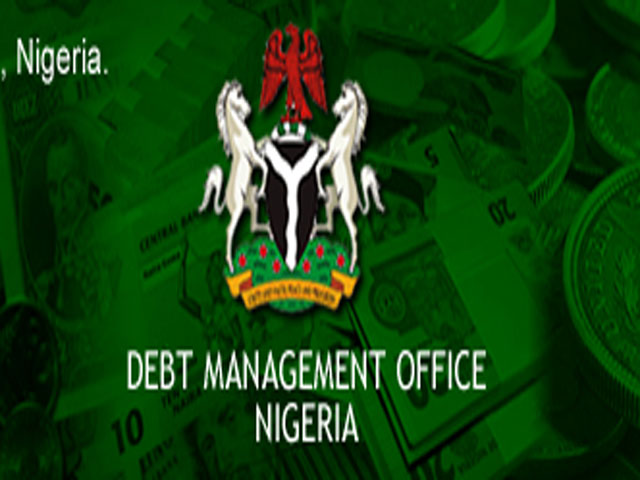According to the latest report released by DMO, Nigeria’s total debt portfolio hits N24.9 trillion as of March 31, 2019, compared to N24.3 trillion in December 2018. That is, quarter on quarter, Nigeria’s total debt stock rose by 2.3% or N560 billion.
Nigeria’s debt stock category for the first quarter of 2019 shows that the country’s total external debt is estimated at N7.8 trillion (US$25.6 billion), constituting 31.5% of total debt for Federal government, Stated and the FCT.
The total domestic debt rose to N17 trillion (US$55.6 billion) or 68% of total debt stock within the quarter. The Federal government’s domestic debt was put at N13.1 trillion or US$42.7 billion.
All the 36 states accrued domestic debt of N3.97 trillion or US$12.9 billion as of the end of March.
A Further look into the breakdown of debts accruable to states in Nigeria revealed that states’ debt profile increased by 3% within the last quarter.
Specifically, as of December 2018, total debt accruable to states was estimated at N3.85 trillion, while the figure rose to N3.97 trillion in March 2019.
Analysis of the data shows that Lagos State posted the highest debt stock as of March 2018 with a whopping N542.2 billion. Other states that make up the top 10 highest indebted states in Nigeria include; Rivers – N225.5 billion; Delta – 223.4 billion; Akwa Ibom – N199.7 billion; Cross River – N167.2 billion; FCT – N163.5 billion.
Others are: Osun – N147.7 billion; Bayelsa – N133.3 billion; Kano – N121.7 billion and Ekiti – N118 billion.
It is no longer news that close to 30 states in Nigeria have been described as insolvent. Recall that the federal government dished out bailout funds to assist almost 30 states in the past year to pay up workers’ salaries at respective states.
While the federal government has come out to indicate no more bail-out to states governments, trouble may soon unravel as the organized Labour Union is bent on the implementation of the new N30,000 minimum wage from states whose revenue sources have plunged over time with rising debt.
In recent months, Nigeria’s debt has gained wide criticisms both within the domestic and international spheres. For instance; The African Development Bank (AfBD) recently revealed that Nigeria spends more than 50% of its revenue on debt servicing.
With Nigeria’s rising debt closing down on N30 trillion mark, the calls for fresh concerns in the country.

 Business7 days ago
Business7 days ago
 Business7 days ago
Business7 days ago
 Football18 hours ago
Football18 hours ago
 Education7 days ago
Education7 days ago
 Crime7 days ago
Crime7 days ago
 Covid-197 days ago
Covid-197 days ago
 Business7 days ago
Business7 days ago
 Latest5 days ago
Latest5 days ago













